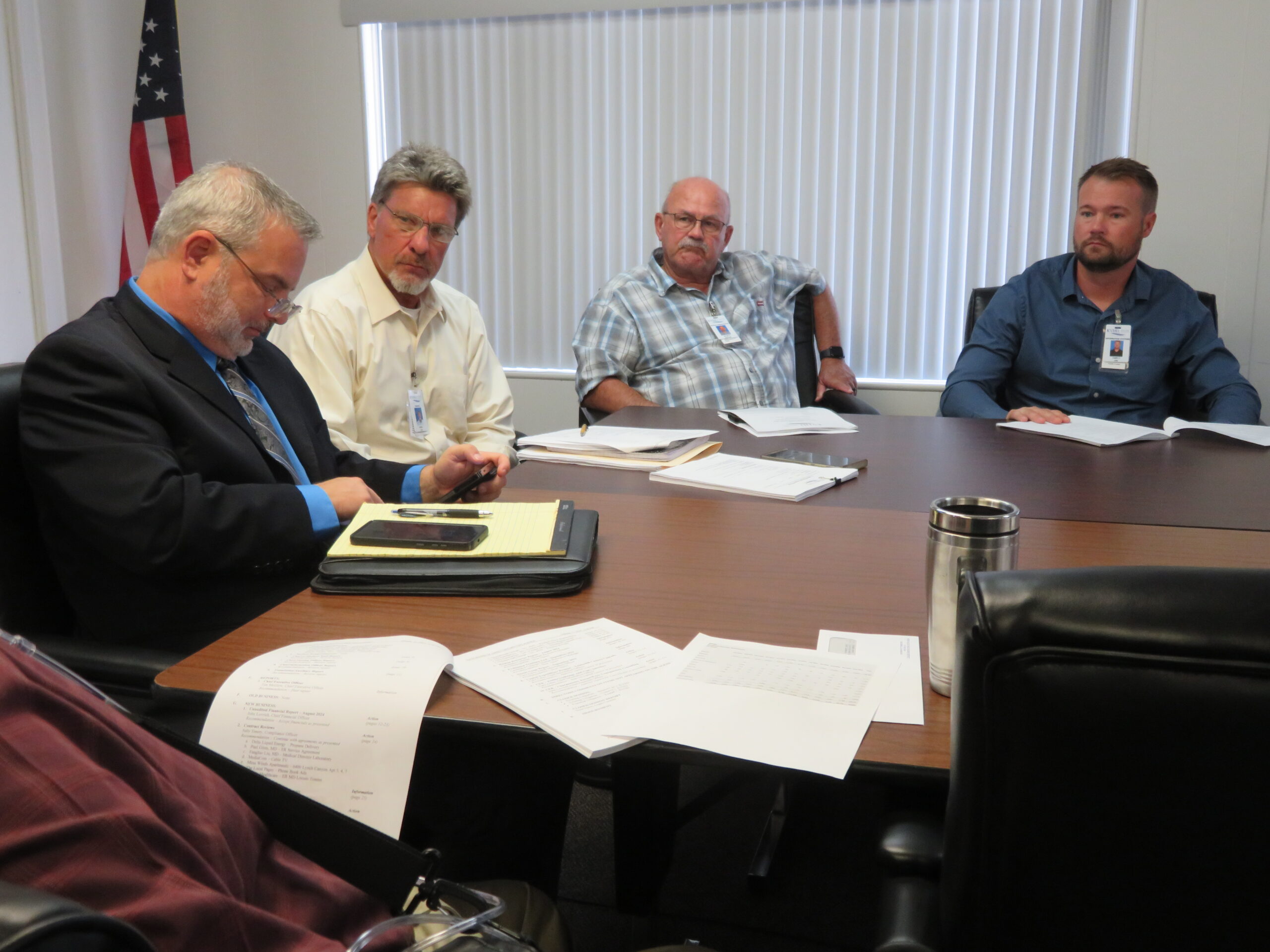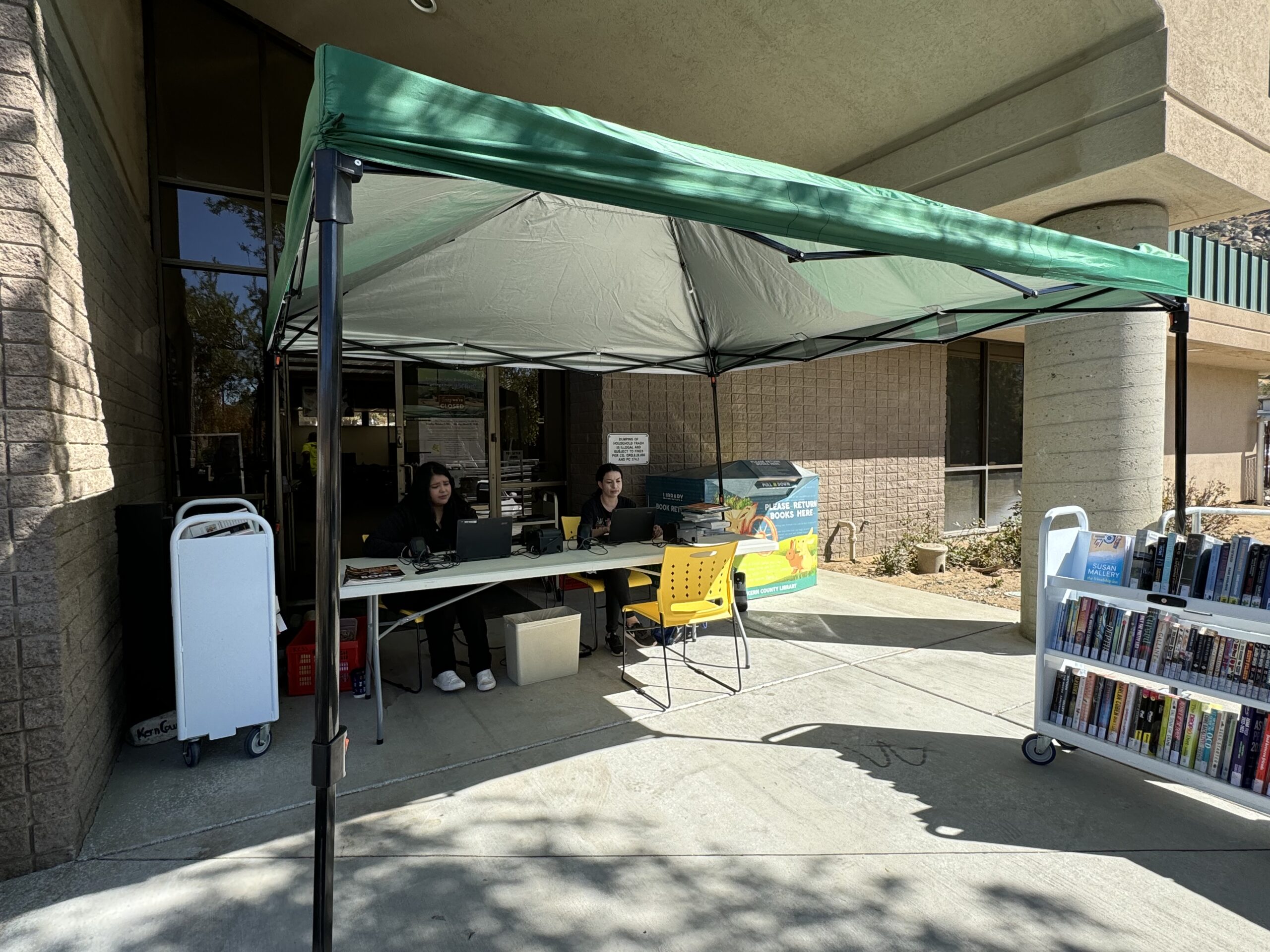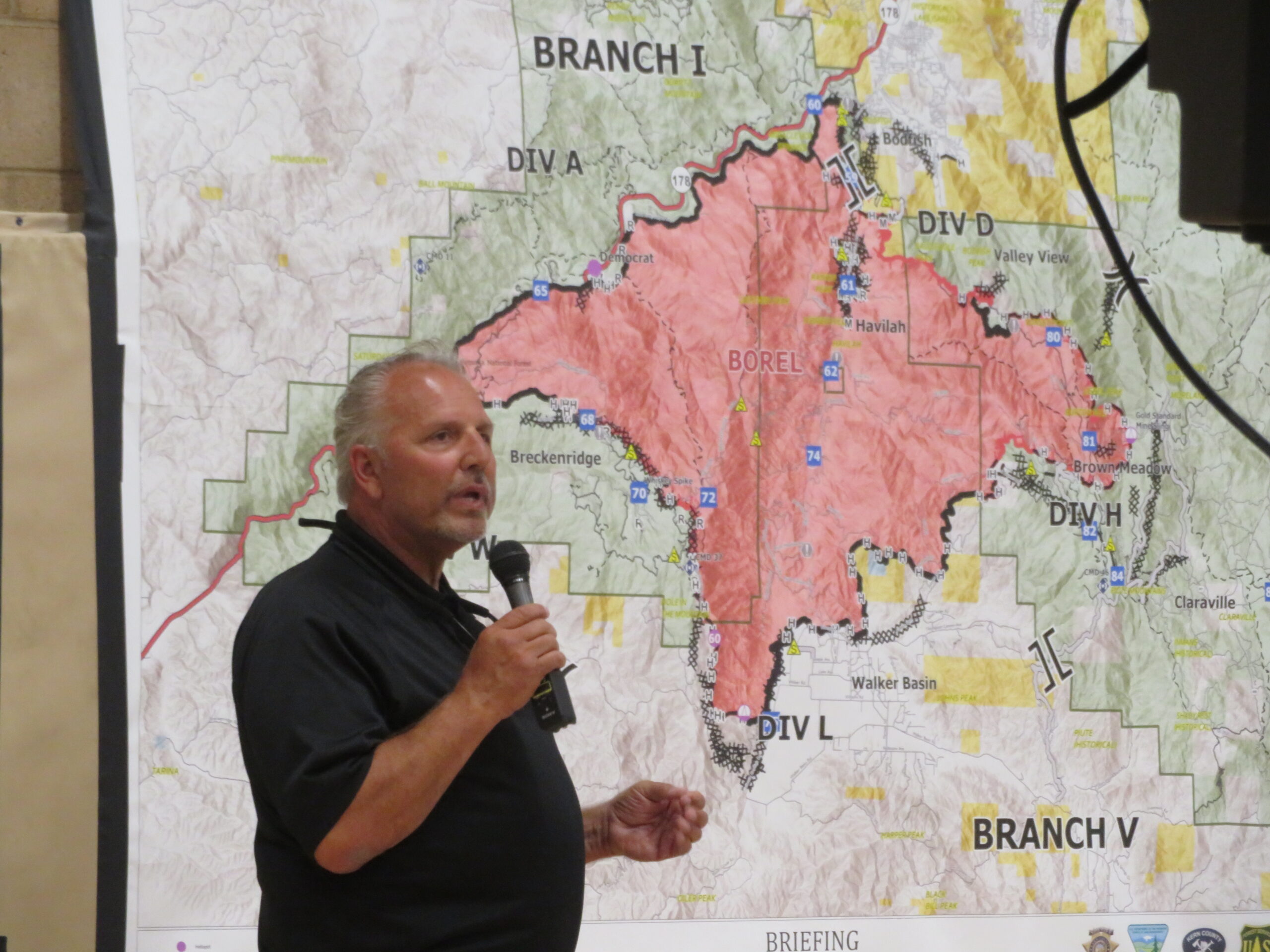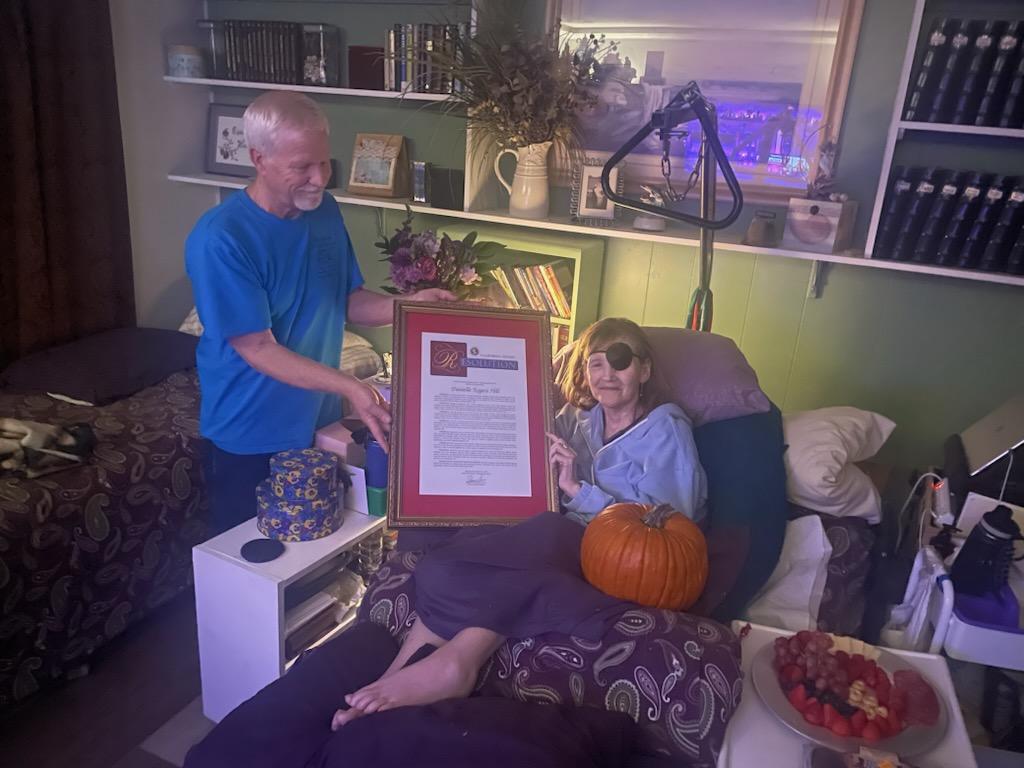Photo by Catherine Stachowiak
The Kern Valley Hospital has been among many other hospitals in the nation that have been experiencing a shortage of IVs. This shortage is impacting patient treatment and scheduled surgeries. However the hospitals and providers have been making arrangements to deal with the crisis.
Thursday Oct 10, During the Chief Executive Officer’s report at the Kern Valley Healthcare District’s board meeting, the CEO Tim McGlew explained the situation.
McGlew announced, “One of the big issues we’ve got going right now, that’s affecting all hospitals, is obviously because of Hurricane Helene, the major plant for production of IVs solution is in Ashville, which was the hardest hit area. And so their plant was damaged. And so they’re currently not producing any IVs out of their facility. That has created a huge shortage issue for every hospital. And so we have approximately a nine or 10-day supply of IVs at this point in time. And with no idea at this point where those IVs are going to come from. We did find out, as of just yesterday morning, that they actually did announce that they were now back in production for some. But we have no idea yet at this point what IVs because there is a whole list of different brands of IVs or different solutions and things like that.”
Therefore the staff of Kern Valley Hospital was not scheduling out patient surgeries at the time of McGlew’s announcement.
Mark Gordon the Chief Nursing Officer got with the ER doctors and with hospital staff to reduce the hospital’s own utilizations of IV solutions, where they can, temporarily. Gordon told the hospital board that the hospital has sought to find an alternative to the producer of the IVs. But the supplies were being horded.
McGlew told the board, “We’ve looked at secondary manufacturers. That’s now shutdown because they’re now hording supplies for their customers that they have.”
McGlew then said that he found out the prior day, October 9 that the hospital will now be on partial distribution for three cases a week. McGlew thought that under normal circumstances the amount would only last 4 or 5 days.
Board director Gene Parks suggested the CEO and CNO should find out what other hospitals were doing.
McGlew said some hospitals were cutting down the amount of time they’re keeping patients on IVs. Some are going to PMO meds, now, with Gatorade or some other form of hydration. CNO any TKO drips are stopped. There are ways to decrease the usage of IVs. The pharmacy is changing patients to PMO antibiotics when it can.
Parks wondered about the idea of identifying price gouging. McGlew said that the hospital is on guard for the event of such an issue and would report it to the police.
Gordon said that sometimes the civilian population could tap into military supply through avenues. But he doubts they have stores of IVs solutions available.
McGlew said a plant was totally destroyed. They had water damage, and a third party in there, to industrially clean the facility. The bridge was washed out over the river, which made coming and going to and from the facility difficult for the company’s workers. They built a temporary bridge and now they’re in the process of permanently replacing the bridge. They reached out to their plants, down in Mexico, to try and double their production.
“This just came up this week and it’s been a huge thing,” McGlew said. He thinks that with the efforts they’re making, they will be fine for now, and able to ride out this shortage.





